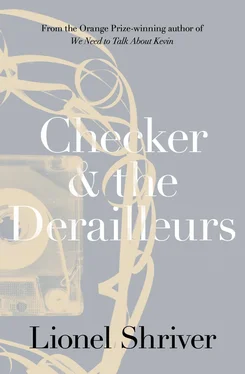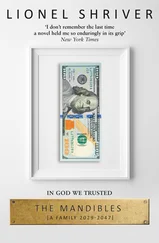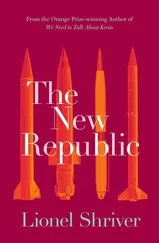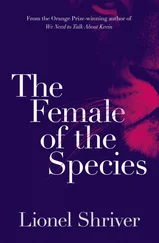Besides, everyone said Plato’s was “good,” though the word had put Eaton off distinctly. They said it the way you’d say a “good woman,” meaning ugly. Plato’s was a “good club” the way you’d say Jerusalem was good, somewhere in the Bible.
The following Friday night Eaton kept putting on his coat and taking it off again. He’d flounce in a chair, tap his fingers, turn up the radio—Journey. Awful. Off. Tap, tap, tap. Finally, he grabbed the cashmere once and for all and rushed out the door.
Gliding in with his crew, Eaton glanced hastily around the club; when he failed to find what he was looking for, his stomach sank, just as it had when Charlotte showed up at his gigs without Stephanie. The place suddenly felt flat. This time, Eaton wondered why he’d concerned himself with Plato’s at all—low-lit and woody, with no track lighting or rippling bulbs around the bar, the club made no effort at any kind of effect. Furthermore, at almost midnight, there was no music. Maybe The Derailleurs were on a break, but if so they couldn’t have bubbled anybody’s hormones—the immediate feeling of the crowd was subdued, even depressed. No one was talking very loud, and everyone seemed sober.
“This place is sure different from last time,” said Brinkley.
“This isn’t a club, it’s a morgue!” said Gilbert.
They sat in the corner, refreshingly disgusted.
“I thought there was supposed to be live music here,” Eaton charged the waitress.
She sighed. “Well, it’s happened again. You know. Check. Maybe next week. Maybe even tomorrow.”
“You lost me.”
She looked at Eaton more closely. “Oh, you’re new here, aren’t you?”
“I have to be a member?”
“No, it’s just regulars are used to this. Checker— disappears .” Raising her eyes enigmatically, she swished her tray to the next table.
That explained it, for the rest of The Derailleurs were all propped at the front table. Breathing in her cloying wake reminded Eaton of passing cosmetics counters, with their nauseating reek of mixed perfumes.
Standing abruptly in the middle of Brinkley and Gilbert’s riveting debate over tequila-salt-lemon vs. tequila-lemon-salt, Eaton swirled his black cashmere greatcoat around his shoulders and strode to the lead guitar.
“Not playing tonight?” Eaton inquired.
“Our head man just won an all-expenses-paid trip to Florida,” said the blond longhair dourly.
“That’s surprising, for a band with your reputation—”
“What have you heard about The Derailleurs?” asked the straight kid, whose ears stuck out from his head.
“We don’t need to hear about The Derailleurs, Howard,” said the longhair. “We are The Derailleurs. We know all about us already.”
“I was wondering,” said Eaton, “since your delinquent member—”
“Nobody said he a delinquent,” said the big black bassist.
“Your man in Florida, then.”
“Our man,” said the bassist firmly, “period.”
Eaton took a breath and smiled. “Of course. It’s just, I’ve kicked around the drums myself. I’m only so good, but if you stuck to covers I could keep a steady three-four. I wouldn’t presume to equal your own stunning percussionist. But for the hell of it, maybe I could fill in?” Eaton looked gamely around the table.
“As the manager—” Howard began.
“Howard listens ,” said the guitarist.
“Would he like to listen tonight?” asked Eaton solicitously.
“No.”
They turned toward the end of the table. The Middle Eastern saxophonist had folded his arms. “We half our drummer.”
“On the contrary,” said Eaton, “it seems that you don’t.”
“You say you not so good. Why we play with you, not-so-good?”
“Excuse me, but can he understand me? I see we have some second-language problems here.”
“Rrreal fine, slime mold,” said the saxophonist for himself.
“Aw, can it, Hijack,” said the bassist. “Check on vacation, pull this night out somehow. Let’s play.” Rolling to a stand, he led the rest of the band to the dais.
Eaton took his seat on the throne and pulled his own drumsticks out of his greatcoat. He tested the tom and it went thwap! What? The heads were completely loosened—and no wonder. Calf skins! There wasn’t a rock drummer in this country who used calf skins. With annoyance, Eaton went through the tedious process of racheting the lugs tight and testing around the rim to get them even. Somehow they—resisted. The heads weren’t interested in attaining the tautness Eaton required.
Eaton tried the tuning with a snappy run around the pieces. God, what a pile of tin cans. The hardware rattled. There was a buzz in the bass. And the whole set was ancient, big band or before, though Eaton did admire the Zildjian-K’s—you hardly ever saw those nowadays, hand-hammered Armenian cymbals, exquisitely thin. Even the ride rang with a long resonant shimmer at the touch of his stick, though to Eaton’s taste they were a little oversensitive; they—winced. He eyed the set; it seemed to eye him back. But Eaton knew how to discipline inanimate objects. Whenever his possessions broke, which was often, he imagined he was getting the last laugh.
“Boys and girls, you may have heard we’ve been caught out Checkless,” the lanky guitarist began. “However, with a volunteer from our studio audience, we’ll proceed. In consideration of our guest, only familiar favorites, please.”
When they began with “Louie, Louie,” the whole band had their ears cocked for Eaton’s drumming, though that proved unnecessary—they could barely hear anything else. The guitarist forced his voice; the bassist turned up his level; the keyboardist, something of a delicate touch the weekend before, torqued up his electric piano. When Hijack opened into a sax solo, Eaton bore down all the more, until the horn player was inserting the mic in his bell.
At the end of the song, the saxophonist turned to Eaton behind him. “You break Sheckair’s head,” he said quietly, “I break yours.”
As they grated through Hard Cheese’s “Two Is a Crowd” and on to “Johnny B. Good,” Eaton pushed the tempo when the lead slowed down; he dragged just as the bass thrummed forward. Because drums set the standard, this left the musicians out front sounding out of sync. Further, even when the band was playing together, they all rushed toward the song’s conclusion, as if to end was to win, as if the reason to play it was to get it over with. And it wasn’t only Eaton, either. They all lashed their instruments, spitting the words out like projectiles they hoped would hit someone on the head. You got the feeling that after listening to a song like that Johnny would be very, very bad.
With “(I Can’t Get No) Satisfaction” Plato’s moist air turned acrid with evaporating sweat. The crowd, though not seemingly disappointed, was unusually rude; one patron in the back kept yelling, “Kill ’em!” waving his hands until he spilled his beer. A fight broke out by the bar; waitresses got testy and started carding; boys got grabby and girls got bitchy; customers recklessly mixed their poisons and threw up in the bathroom. Still, they were all apparently convinced they were having a wonderful time.
When the band took a break, The Derailleurs save the Middle Eastern muttered something to Eaton about “good job,” but their remarks were muffled and short. Everyone but the girl went to swill down something stiff. Eaton felt the victim of a great lack of generosity. He may not have ever experienced genuine, spontaneous acclaim, but he knew this wasn’t it.
When Eaton sat down for the next set the drums glared at him like prison labor.
Eaton outdid himself. The toms tippled in their brackets; the bass edged gradually from his foot; the Zildjian-K’s began to tremble from the shadow of his hand. He broke five hickory drumsticks.
Читать дальше












